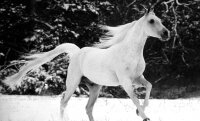 Ozark Brief is a collaborative effort between Emprise Review and Ozarks Unbound designed to highlight area writers. A few questions, featured writing, and a picture–enough information to make you seek out more from the writer.
Ozark Brief is a collaborative effort between Emprise Review and Ozarks Unbound designed to highlight area writers. A few questions, featured writing, and a picture–enough information to make you seek out more from the writer.
1. What brought you to the writing life?
I suppose I was born to the writing life. I’m the youngest of three girls, but we were all born very close together, leading me to often want to do things that weren’t quite age appropriate. While my sisters got to go and do all the ‘big girl’ things, I was left to observe and cultivate a sense of being an outsider looking in. That identity stuck with me even after I became a ‘big girl’ myself. Combine that with a love of reading and the writing naturally followed. Also, without being academically minded, our parents instilled us with a sense of curiosity and the ability to self-educate. We had a set of the World Book Encyclopedia from the early 70’s and whenever I pestered my mother with a question about this or that, she sent me to the World Books. I still remember spending endless hours flipping through those crisp pages.
In the beginning I simply enjoyed creating stories and writing them down, and the praise I received for those stories from teachers and family members created a need for an audience. Later, around sixth grade I think, poetry became important to me. My mom had a huge electric typewriter that she let me use. I copied poems by Tennyson, Dickinson, Poe, Hughes, Shelley, and more, the clunking of the keys helping me learn the rhythms of formal poetry along the way. Eventually, I wrote some poems of my own and bound them up, alongside the masters, in an anthology I still have today. There are even illustrations that I created for some of the famous poems.
I kept writing all through high school and received wonderful encouragement from teachers and family alike. I can’t say enough about the importance of that encouragement. I was a sensitive child and young adult, often feeling out of place and uncomfortable; the acceptance of my writing by the adults around me reassured me that I would find my place in the world, eventually.
In college, my writing did more than blossom, it grew wild and verdant, finally sinking a strong taproot as I was able to declare a major and settle in to learning the craft that would fine tune my attempts to express the nearly overwhelming emotions roiling around inside me. Here, I had a whole of host of professors leading me through book after book, opening wide the doors to a virtual horde of mentors. Here, I learned that I might actually have the talent and the perseverance that it takes to become a ‘real writer’ and publish a book of my own someday.
Dispatch From The Outpost
Distant one—today the weather
will not cooperate, will not stay put
in proper April, but lurches backwards
cold and gray. The birds do not take notice.
A meadowlark emerges from the brush,
sparrows cluster under the sweet gum,
and finches feed on the wild thistle.
Here, I am in the company of wings.Along this marsh, I have space
to walk and unravel what I want to say.
This is the thinning-down time, month
of thunder and hail and half-finished meals.
Days ago, the wind knocked down the power
lines, arcing sparks that fireworked the sky.
The house went mute, and I was alone
in the silence that lives under the silence
of a one-bedroom home.
Here, the world is all wait and want,
patience, the charm you tied around my wrist.And this—consider on your return
that every season finds us changed.
2. In “Dispatch From The Outpost” it feels like the dispatch-writer is combating nature though it eventually reads like an argument for a rustic lifestyle. Can you talk about that?
Ah, well, you’ve struck the nail on the head here. To go back to my beginnings, I was born in northeast Iowa, in a little city, and we lived on the outskirts in a small neighborhood surrounded by fields and farms. In fact, for several years as a child, we had horses that we boarded at the farm just down the street. While both my parents had been raised on farms, they had chosen a city life; however, we still spent much of our summers on my father’s parents’ farm. From the beginning, I felt the split between the two worlds.
As an adult, I’ve lived in rural areas, small towns, and cities both large and small, from the Rockies, through the Midwest, over to the East coast, and now in the South, and I still feel this split. I certainly don’t want to romanticize the rustic lifestyle as I know first hand how hard the work of being responsible for the land can be, and yet, I see that lifestyle slipping away as corporate farming and land developers take over much of rural America.
At the time I wrote “Dispatch from the Outpost” I was living in Monticello, AR, and the man I would eventually marry was living in Little Rock, so I felt like I was sending him missives from the outskirts. In fact, there are three or four ‘outpost’ poems. I lived, then, in a duplex on the north side of town, and by chance, there were open, undeveloped fields on both sides of my house. I was surrounded by wildlife, especially birds that I couldn’t see in the city. (Here the parental legacy lives on, since my mother is an avid birder and passed on her knowledge to me.) I was also struggling to accept the long-distance status of this romantic relationship, a status that didn’t sit well with me, eventually leading to a move to Little Rock, giving up that house on the outskirts, on the divide between town and country.
The poem also opens with a comment on the weather, another ancestral keepsake, as people who have farmed never stop talking about the weather, and my family is no exception. It seems a natural extension for me to use the weather in my poetry as a larger, overreaching metaphor attempting to say the truth about the crazy emotions of being alive and aware in a complicated world. And perhaps that’s the link to the rustic life. People who live not just on the land as we do in the city, but with the land and as a part of it, working it with their hands, as people do in rural areas, often become more aware of the physical environment in all its intricacies, both beautiful and ugly. And while there is wonderful urban literature that unveils the truth of what it means to be human, that has not been my way, my way has been the vegetable way, slow and seasonal.
Sandy blogs at Myself the only Kangaroo among the Beauty, her collection of poetry, Blood Almanac,won the 2005 Anhinga Prize for Poetry.








